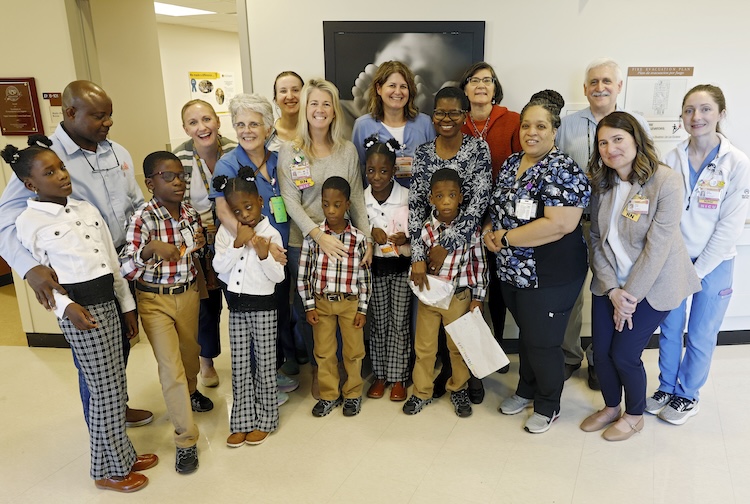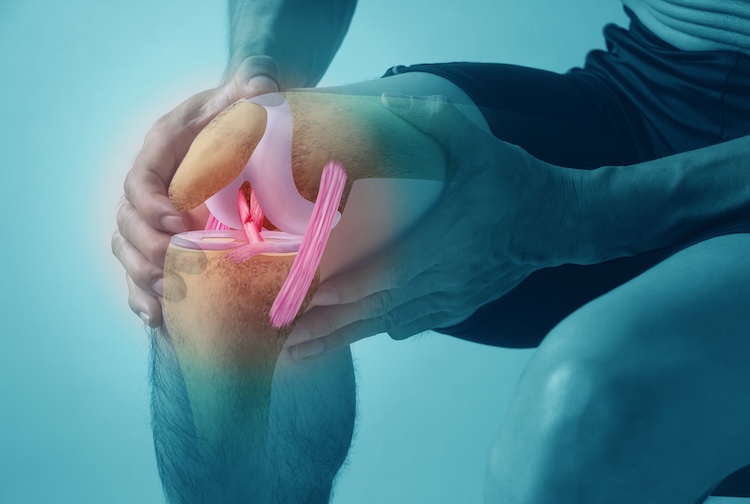VCU Health and VMFA organize exhibit tours to provide a sense of normalcy for ALS and PLS patients
To combat loneliness brought on by the rare disease, VCU Health’s ALS Clinic fosters community with patients and their families.
June 09, 2025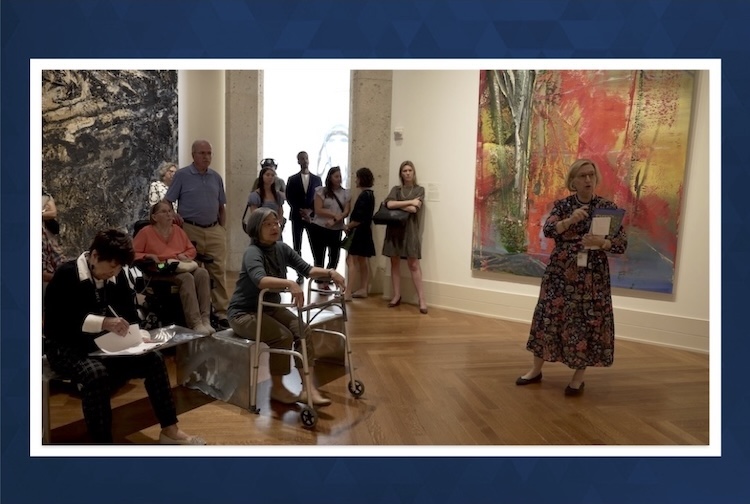 Gerry Seeber (sitting on bench to the left) and Pam Tinsley (right) are volunteer tour guides at the Virginia Museum of Fine Arts in Richmond, Virginia. One of their favorite groups to show around the museum is VCU Health’s ALS Support Group. (Taylor MacKillop, Enterprise Marketing and Communications)
Gerry Seeber (sitting on bench to the left) and Pam Tinsley (right) are volunteer tour guides at the Virginia Museum of Fine Arts in Richmond, Virginia. One of their favorite groups to show around the museum is VCU Health’s ALS Support Group. (Taylor MacKillop, Enterprise Marketing and Communications)
By Haley Tenore and Leigh Farmer
For anyone who appreciates and observes art, studying its layers and beauty is an adventure. In turn, observing the beauty of human interaction and relationships can be just as meaningful.
On a sunny afternoon in the spring, a beautiful piece of humanity was taking shape in the atrium of the Virginia Museum of Fine Arts (VMFA). It wasn’t commissioned or purchased. It was fate.
“Today we are going to visit the contemporary art section of the museum. Everyone, hop on the elevator to floor two,” directed Gerry Seeber, a volunteer tour guide who spends her days with partner tour guide Pam Tinsley. Today’s group is admittedly one of their favorites. They spend a lot of time preparing for this group.
“This is the first tour I've ever taken. I learned a lot more than I do just moseying about,” said Larry McCann, who attended with his sister-in-law. It’s a lot harder for Larry to “mosey” these days because he has primary lateral sclerosis (PLS).
He’s a patient at VCU Health’s ALS Clinic, which serves people diagnosed with PLS, like Larry, and ALS, short for amyotrophic lateral sclerosis.
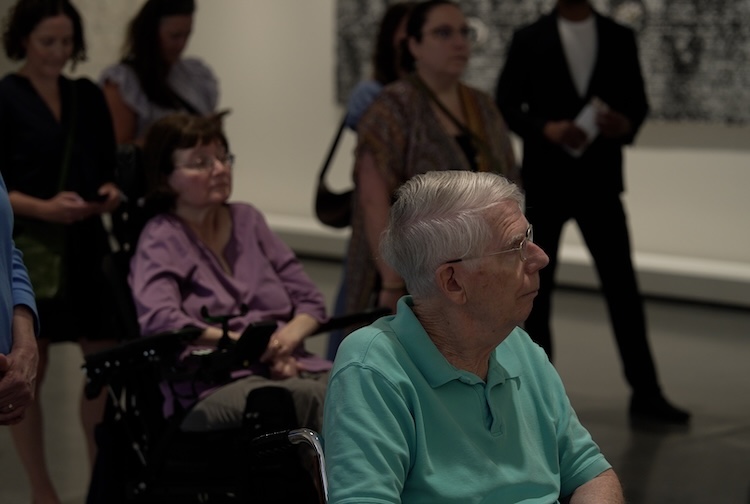
Larry McCann, a VCU Health patient with PLS, attended a tour with other patients part of the ALS Support Group. (Taylor MacKillop, Enterprise Marketing and Communications)
These progressive neuromuscular conditions are usually diagnosed in adults over 55, but earlier onset can occur. ALS hinders the nerves’ ability to send messages to the muscles, and, over time, can impact a person’s ability to move, speak, eat and breathe.
PLS is similar to ALS but tends to progress more slowly. While it mainly impacts the arms and legs, PLS can also affect speech, swallowing and respiratory functioning. There are no cures available, only symptomatic treatments to help improve one’s quality of life and in the case of ALS, slow decline.
ALS affects about 30,000 people in the U.S. and an estimated 450,000 people around the world. And PLS is so uncommon that it’s difficult to find reliable data on the number of people diagnosed with it. Since these are rare diseases, it can be hard for patients to find others who can relate to their struggles. However, during the tour at VMFA, Larry found himself surrounded by people going through the same thing.
The tour that Seeber and Tinsley were leading was a support group for patients at the VCU Health ALS clinic. It’s organized by social worker Anne Shields, LCSW, a member of the clinic’s team.
“ALS may be the common denominator amongst us, but the conversation about art connects us in different ways,” Shields said.
“This brings so much enthusiasm and happiness to them, to be part of this community that we’ve built outside of the clinic,” said Kelly Gwathmey, M.D., director of the VCU Health ALS Clinic.
Building connections is a crucial part of the health care journey for these patients.
“I have a deep commitment to making sure individuals, especially those with complex diagnoses like ALS, don’t feel isolated in their experience,” Shields said. “I wanted to help people bridge the gap between their community and medical care to elevate their overall experience of living with a diagnosis.”
ALS may be the common denominator amongst us, but the conversation about art connects us in different ways.
Anne Shields, LCSW, VCU Health ALS Clinic
Seeber and Tinsley agree. The duo has grown attached to this support group. They are more than just guides; they are protectors of sorts.
“These visitors have become very dear to us,” Tinsley said. “I value this friendship with the ALS support group and look forward to our next visit.”
“I have spent most of my lifetime in the field of health care, and it has been a privilege and honor to serve these wonderful people at VMFA,” Seeber said.
Those who attended the VMFA tour were in various stages of their health care journey. Some used mobility aids like walkers or wheelchairs, and others used electronic devices to communicate. Many brought spouses or family members who work as caregivers.
The support group is just part of the care families receive when they go through their health care journey at the VCU Health ALS Clinic. They also have access to a multidisciplinary team with an undeniable commitment to their patients.
The clinic is designated as an ALS Association Center of Excellence and is the largest clinic in the commonwealth. The care team is dedicated to improving the quality of life of their patients, from running a first-of-its-kind pilot program to get people diagnosed faster to clinical study evaluating the impact of videotaping appointments for patients and caregivers to help with care at home.
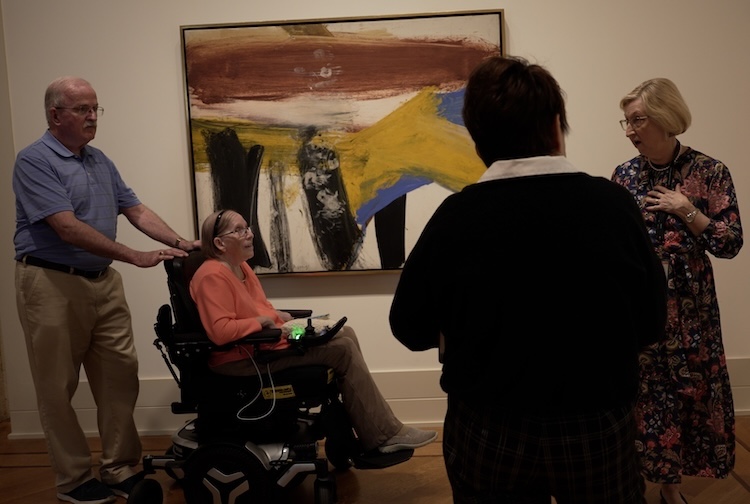
Joe and Sue say it's meaningful to spend time with other patients and caregivers from the VCU Health ALS Clinic. (Taylor MacKillop, Enterprise Marketing and Communications)
The support group is the fun and comforting part of this journey.
Joe and Sue, who have been married for 48 years, like to incorporate the VMFA tours into their routine. Sue was diagnosed with PLS in 2019. She uses a wheelchair and communicates by typing on her phone, which can then speak for her through a speech assistant application.
“It’s nice to be with people who are experiencing what you’re experiencing,” Joe said. “I think a lot of other people don’t realize what goes into taking care of someone who's got this disease.”
Having a progressive, incurable illness like ALS or PLS can put a lot of stress on patients and their families. Their calendars can quickly become a never-ending cycle of appointments and therapies, causing the disease to consume all aspects of a person’s life. That’s why it’s important that patients can find events where the disease is not the main focus.
“I believe that being part of a community with others who are living with ALS is incredibly valuable,” Shields said. “There’s something deeply powerful about simply being in the presence of people who understand firsthand what it means to navigate life with this diagnosis. Because ALS is so rare, it can often feel isolating, but our goal is to create meaningful, enjoyable, and engaging experiences that allow us to connect.”
Inspired by this story? Read more about our patients and providers


